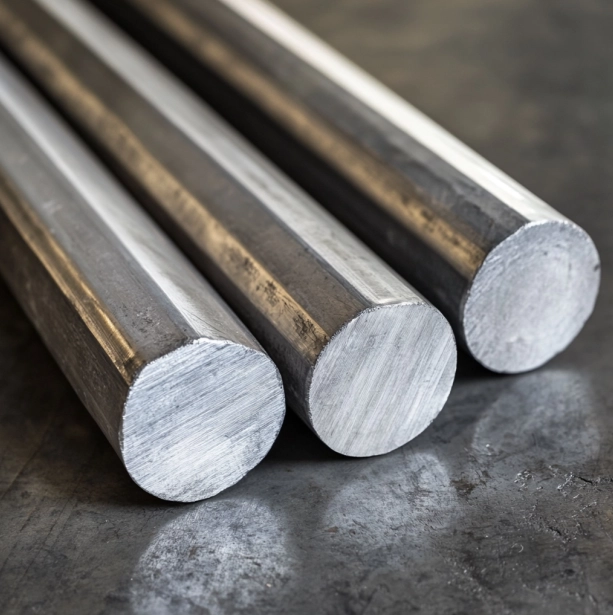15
2025
-
07
Aluminum Bars: An Analysis of Characteristics, Advantages, and Versatile Applications
Author:
Exploring Aluminum Bars' Properties, Benefits, and Versatile Use Cases
Aluminum bars have become indispensable key components in numerous industries due to their exceptional properties and a wide range of applications. They are lightweight yet robust, achieving a perfect balance in terms of strength, versatility, and corrosion resistance. This article will delve into the characteristics, advantages, and application scenarios of aluminum bars, highlighting their significant position in modern manufacturing and construction.
Characteristics of Aluminum Bars
Aluminum bars are well - known for their lightweight nature, weighing approximately one - third of steel. This makes them much easier to handle and transport. Despite their low density, they possess high strength, enabling them to meet the requirements of various structural applications. Aluminum has excellent malleability and ductility, making it easy to be machined, welded, and formed into different shapes, thereby greatly enhancing its practicality in multiple industries.
One of the most remarkable characteristics of aluminum bars is their corrosion resistance. When exposed to air, aluminum quickly forms a thin oxide layer. This layer effectively protects the metal from further oxidation, ensuring long - term service life and good durability even in harsh environments. This property makes aluminum bars an ideal choice for outdoor and marine applications where materials need to be exposed to the natural environment for a long time.
Advantages of Using Aluminum Bars
1. Lightweight and Strong
The primary advantage of aluminum bars lies in their combination of light weight and high strength. For application scenarios where weight reduction is crucial without sacrificing structural integrity, aluminum bars are undoubtedly an excellent choice. For example, in the aerospace industry, reducing the weight of components can directly improve fuel efficiency and overall performance.
2. High Corrosion Resistance
The inherent corrosion resistance of aluminum bars ensures that they can maintain their structural integrity and aesthetic appearance over an extended period. This makes them highly valuable in industries such as construction, marine, and transportation, where materials are often exposed to moisture and chemicals.
3. Excellent Thermal and Electrical Conductivity
Aluminum is an excellent conductor of heat and electricity, so aluminum bars are well - suited for applications that require efficient heat or electrical transfer. In the electrical industry, aluminum bars are commonly used as bus bars and connectors. In the automotive industry, they are widely used in heat exchangers and radiators.
4. High Recyclability
Aluminum is one of the most recyclable materials. It can retain its properties even after multiple recycling processes. This makes aluminum bars an environmentally friendly option, as recycling aluminum requires only a fraction of the energy needed to produce new aluminum from ore. The high recyclability of aluminum contributes to sustainable development and reduces the overall carbon footprint of industries using this metal.
5. Great Versatility
The versatility of aluminum bars is unparalleled. They can be extruded into various shapes and sizes to meet different design requirements. Whether it is simple rectangular bars or complex profiled bars, aluminum can be customized according to specific needs, making it the preferred material for architects, engineers, and manufacturers.
Application Scenarios of Aluminum Bars
1. Construction and Architectural Field
In the construction industry, aluminum bars are widely used due to their high strength, durability, and aesthetic appeal. They are commonly used in the production of window frames, curtain walls, roofs, and structural components. The corrosion resistance of aluminum ensures that buildings and infrastructure can have a long service life with minimal maintenance even when exposed to the natural environment for a long time.
2. Transportation Industry
The transportation industry has benefited greatly from the use of aluminum bars, especially in the automotive, aerospace, and railway sectors. The lightweight nature of aluminum helps reduce the overall weight of vehicles, thereby improving fuel efficiency and performance. Aluminum bars are used in the manufacturing of aircraft fuselages, automotive body panels, and train components, contributing to safer and more efficient transportation solutions.
3. Electrical and Electronics Industry
In the electrical industry, aluminum bars play an important role as conductors in power distribution systems. Their high conductivity and corrosion resistance make them suitable for bus bars, electrical connectors, and other components that require reliable electrical performance. In addition, the thermal conductivity of aluminum makes it an ideal choice for heat sinks and cooling solutions in electronic devices.
4. Marine Industry
The marine industry relies on aluminum bars for the construction of boats, ships, and offshore structures. The corrosion resistance of aluminum ensures that these structures can withstand the harsh marine environment, reducing maintenance costs and extending their service life. The lightweight properties of aluminum also enhance the performance and fuel efficiency of marine vessels.
5. Consumer Goods and Industrial Equipment
Aluminum bars find extensive applications in the production of consumer goods and industrial equipment. From household appliances and furniture to machinery and tools, the versatility and durability of aluminum make it a preferred material. Its ease of forming and finishing allows for innovative designs and high - quality end products.
Conclusion
Aluminum bars have become an integral part of modern industry due to their exceptional properties and versatility. Their combination of light weight, high strength, corrosion resistance, excellent thermal and electrical conductivity, and high recyclability makes them the material of choice in various industries. As industries continue to place greater emphasis on efficiency, sustainability, and performance, the demand for aluminum bars is expected to continue to grow. Understanding the characteristics, advantages, and application scenarios of aluminum bars helps highlight their important role in driving innovation and development in manufacturing and construction.
Aluminum Bar,Aluminum Bars' Properties,Aluminum Bars' Benefits,Aluminum Bars' Versatile Use
PREV
2025-03-17
Aluminum Bars: An Analysis of Characteristics, Advantages, and Versatile Applications
2025-07-15










